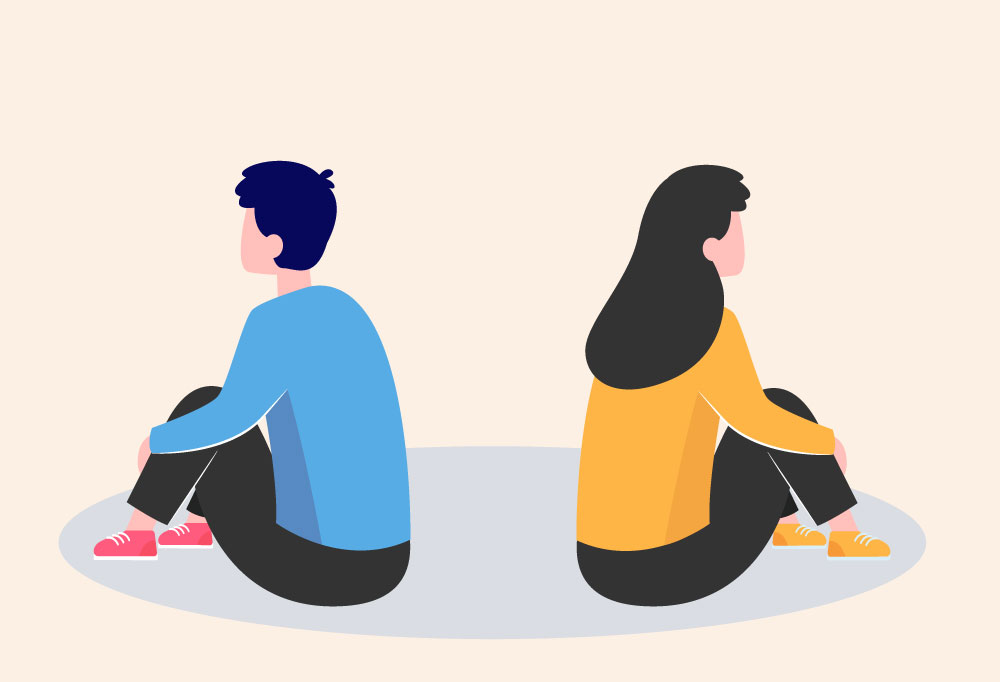Dealing With Your Partner’s Differences
Published on January 27th, 2021
Updated on January 2nd, 2024

Not one person is created the exact same as another. There are many people who share values, daily activities and life interests. There are many people who are polarized in their likes and dislikes. Sometimes we find ourselves with a partner who is a mix of it all. It is in the commonalities and differences that we are able to make strong connections. It is also in the commonalities and difference that we can experience strife and discontentment.
When we are met with turmoil, it can be a scary place. On the surface, the issue typically pertains to who did not take out the trash, who forgot to get milk at the grocery store or who got home late from work and missed dinner. We know that it is actually not about those menial tasks. It’s about the fear of not being enough, the pain of feeling inadequate or the anxiety of not being heard or seen.
Most of us tend to turn toward our go to stress responses. We choose to bicker, leave, shut down or please our partner to appease the differences. Differences are uncomfortable to us. Differences are new. When we court with someone else and grow intimate, it is likely that these differences will shine through. We get to look at this through two scopes. We can have the mindset that these differences will be what wrecks the ship or we can see it as a fun challenge to work through together.
Sponsored by

Choose a therapist to work with and start healing with 20% off from BetterHelp.
Click HereThe first step in dealing with your partner’s differences is to set your mind to what you can accomplish together. Once you have that frame of mind, you are already miles ahead. Keep in mind that differences in your partner will feel like you are holding a mirror in front of you, strengthening your self-awareness. You will see yourself in how you respond to people.
If your partner is more easy going and carefree and you are more orderly and structured, then you can see this as a positive. You can offset one another to help each other find balance. Differences highlight where we can gain more insight.
Acceptance is another piece of the puzzle. Acceptance is hard to come by and it takes mounds of repetition and practice to get there. What you can consider is what the term acceptance means to you in relation to accepting your partner’s differences.
This works like forgiveness, where it is not a one-time deal and once you have forgiven then all is well. Once you accept someone or a situation, you may need to accept again and again when differences arise.
Ask yourself some questions.
- Am I being rational or irrational in my line of thinking?
- Am I trying to control something that is not within my control?
- What can I change to be reasonable in my mindset?
There are plenty of questions to ask yourself. The idea is that you can sort through what your responsibility is and what you can do to release the perceived control you have over your partner.
Communication is a powerful tool to utilize. Talking it through with your partner can help you both see where you are coming from and where you are trying to go. The same thing goes for you when attempting to understand your partner. It’s beneficial to discuss what needs you have and what the needs are of your partner to find a middle ground. More questions to ask here are:
- What can I do to hold you accountable to your areas of growth?
- What can I do to understand you better?
- What can we do to work through our dissimilarities?
When communicating about this, you get to take on responsibility for your part in it. You get to take charge of how you react or respond to the situation. I have learned that feelings echo the past and that it means to us that we need to be aware of those and how we may be triggered with our partner’s indifferences.
Our partner likely has similarities to that of one of our early life caregivers. We tend to replicate what is familiar, and even if it is not the healthiest for us, we still do it. Our partner may introduce us to new ways of living and how vital it can be to do so.
When dealing with our partner’s differences, we can perceive it as a positive change to the way we formerly thought about, felt about and lived out our lives. We can unlearn some of what was comfortable and familiar to find what goodness is waiting for us. Our partner may be unfamiliar in certain ways, which is only something to look forward to figuring out together. It is not something of which to be afraid and life is worth exploring how you can enliven one another.
Sponsored by

Find an affordable therapist online with 20% off from BetterHelp.
Click Here






Leave A Reply